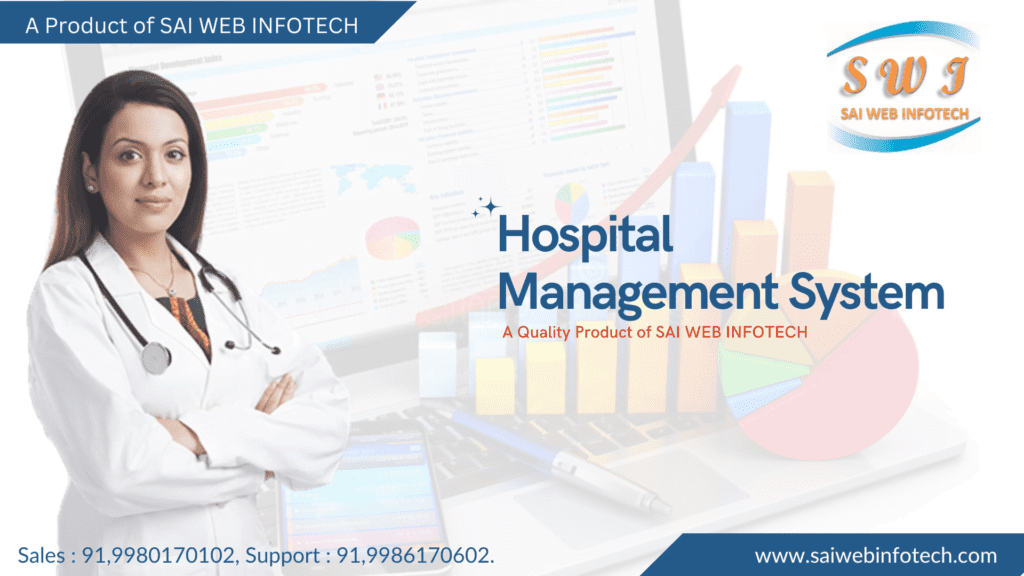Hospital Management Systems (HMS) are crucial for modern healthcare institutions, streamlining operations, enhancing patient care, and optimizing resource utilization. However, like any technology-driven solution, HMS comes with its set of challenges. This blog explores the common problems in hospital management systems and offers insights into how they can be mitigated to ensure seamless operations and patient satisfaction.

Common Problems In Hospital Management System
- Data Security Concerns: Threats of data breaches and loss of sensitive patient information.
- Integration Challenges: Difficulty in connecting diverse systems across departments.
- User Adoption Issues: Resistance from staff unfamiliar with new technologies.
- High Implementation Costs: Significant expenses for small or mid-sized facilities.
- Downtime Risks: Disruptions that can impact patient care and operations.
- Regulatory Compliance: Challenges in meeting healthcare regulations like HIPAA.
- Limited Customization: Inflexibility of off-the-shelf solutions to unique hospital needs.
1. Data Security and Privacy Concerns:
With the increasing digitization of patient records, ensuring data security has become a top priority. HMS often deals with sensitive information like patient health records, financial data, and personal details. A breach can lead to severe consequences, including legal liabilities and loss of trust.
Solution:
- Implement robust encryption methods and multi-factor authentication.
- Regularly update software to patch vulnerabilities.
- Conduct employee training on data security protocols.
2. Integration Challenges
Hospitals often use multiple software systems for different departments, such as billing, pharmacy, and diagnostics. Integrating these systems into a single HMS can be complex and time-consuming.
Solution:
- Choose HMS solutions with built-in interoperability.
- Use standardized APIs for seamless data exchange.
- Work with vendors experienced in healthcare IT integrations.
3. User Adoption Issues
Healthcare professionals, especially those accustomed to traditional methods, may find it challenging to adapt to new technologies. Poor user adoption can result in underutilization of the HMS.
Solution:
- Provide comprehensive training sessions for staff.
- Opt for user-friendly systems with intuitive interfaces.
- Gather feedback from users and make iterative improvements.
4. High Implementation Costs
The upfront costs of deploying a robust HMS can be significant, especially for smaller healthcare facilities. These expenses include software licenses, hardware, training, and maintenance.
Solution:
- Opt for scalable, cloud-based HMS solutions to reduce hardware costs.
- Negotiate payment plans or subscription-based models with vendors.
- Evaluate the long-term return on investment (ROI) to justify initial expenses.
5. Downtime and Technical Issues
System downtimes can disrupt hospital operations, leading to delays in patient care and administrative tasks. Frequent technical glitches can erode trust in the HMS.
Solution:
- Partner with reliable vendors offering robust support and maintenance.
- Invest in high-availability systems with failover mechanisms.
- Regularly monitor system performance to preempt issues.
6. Regulatory Compliance
Hospitals must adhere to various regulations such as HIPAA, GDPR, and local healthcare laws. Ensuring that the HMS complies with these regulations can be a daunting task.
Solution:
- Work with vendors who understand the regulatory landscape.
- Regularly audit systems for compliance.
- Stay updated on changes in healthcare regulations.
7. Customization Limitations
Off-the-shelf HMS solutions may not cater to the unique needs of all healthcare facilities. Lack of customization can hinder operational efficiency.
Solution:
- Choose modular HMS solutions that allow for customization.
- Collaborate with vendors to develop tailored features.
- Regularly assess system performance and address gaps.
Conclusion
While Hospital Management Systems offer numerous benefits, addressing these challenges is essential for maximizing their potential. By prioritizing data security, seamless integration, user-friendly designs, cost-effectiveness, and compliance, healthcare institutions can ensure their HMS contributes effectively to their goals.
Address these challenges proactively, and your hospital will not only improve operational efficiency but also deliver superior patient care.

